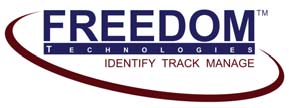Freedom Technologies Automotive
From Juarez to Cottondale
|
By Bob Trebilcock, Editor at Large
Modern Materials Handling
Successful manufacturers were once focused on operating the most efficient production line in their industry. But as those operations have become optimized, just being a low-cost supplier is no longer enough.
Leaders today are focusing on the performance of their entire value chains. In the auto industry, some suppliers are being asked to integrate their manufacturing activities with the auto assembly line, even if the two processes are separated by great distances. That calls for a new level of sophistication in collaboration and materials handling systems.
It's also why Delphi has partnered with third-party logistics (3PL) provider ARD Logistics in Cottondale, Ala. to deliver wiring harnesses on a just-in-time/just-in-sequence (JIT/JIS) basis to two nearby Mercedes plants.
Automated materials handling allows Delphi to synchronize the delivery of parts from ARD's logistics center to the Mercedes campus. The solution includes returnable plastic totes and containers, gantry-mounted load handling, a sophisticated warehouse control system (WCS) and an automated storage and retrieval system (AS/RS) with 2,640 storage locations (Daifuku America Corp).
The solution is also enabled by a tightly integrated information system using manufacturing software, the WCS, bar codes and radio frequency communication to link Mercedes with Delphi and ARD in real time.
Together, Delphi and ARD have created a synchronized manufacturing supply chain that spans 1,200 miles, from harness production in Juarez, Mexico to auto production in Alabama. There, the harnesses, each built for a specific automobile, are temporarily stored in the AS/RS, and then sequenced for delivery according to Mercedes' production schedule. The system can handle 66 harnesses per hour, including safety stock.
This is a marked change from how OEMs like Delphi approached manufacturing before. "In the past, our primary focus was on our processes within the walls of a manufacturing plant," says Gary DeArment, manager for Delphi Packard's North American JIT/JIS Centers. "Now, we have to manage the entire value stream. We do that by integrating our operations with partners like ARD that understand the needs of customers like Mercedes."
Karl Grant, director of operations for ARD, agrees, "To be successful, we have to be able to integrate technology like the AS/RS into our operation so that we can support both Delphi and Mercedes."
In short, the solution created by these two partners is recognition of the fact that successful manufacturing doesn't end on the production line.
Design under pressure
Building to sequence isn't new or unique to Delphi. Other auto manufacturers work with their suppliers on a JIT/JIS basis. But as DeArment points out, "The suppliers' plants are often just a few miles from the auto assembly plant. Rio Bravo Electricos 4 (RBE4), our plant, is 1,200 miles from Mercedes."
For that reason, Delphi decided at the outset to work with a local 3PL rather than build a new distribution center in Alabama. In fact, ARD was already sequencing other parts to Mercedes for other Tier I suppliers from a 120,000 square foot facility in Cottondale. In total, ARD ships more than 50 truckloads of various products a day to Mercedes, with trucks leaving the facility every 20 to 40 minutes.
Synchronizing activities across 1,200 miles, however, wasn't the only logistical hurdle to creating a JIT/JIS solution. Timing was also important: Delphi and ARD had just seven months to implement a system that would normally have taken a year or more.
Further complicating the process was the fact that parts for the AS/RS were being shipped from Japan and the Netherlands at the same time as many retailers were ramping up their inbound shipments from Asia for the Christmas holidays.
A new IT infrastructure also had to be implemented to link Mercedes, ARD and Delphi. "We had an IT system in place," says ARD's Grant. "But to launch this new vehicle, Mercedes scrapped its existing manufacturing system and started from scratch. Integrating all three operations was another major challenge."
Finally, the system had to work flawlessly. "We went to exhaustive lengths to put redundancies in place because there's a substantial penalty if you shut down the assembly plant," says DeArment. "There's a backup generator, so we can run without power and manual backups."
Delphi estimates that the system can provide 99.6% uptime. Approximately 240 harnesses a year may have to be retrieved from the AS/RS manually should downtime occur.
Along the way, every challenge was met. "The project kicked off on May 25 [of last year]," says DeArment. "We did acceptance testing on December 18 and 19, and were ready to begin shipping on Monday, December 21 [2004], just under seven months from when we started."
Flawless execution
Five months after going live, DeArment and Grant say the system has worked flawlessly. "We have realized no downtime as a result of the AS/RS or the information systems," says DeArment.
What's more, the two companies have worked together to provide the JIT/JIS performance required for manufacturing success today.
"What's unique about this project is that both companies have worked in such an integrated way to satisfy Mercedes," says DeArment. "From the time we began this, there has been a real common purpose and an attitude that each organization had to do what it had to do to reach our goal.
|
